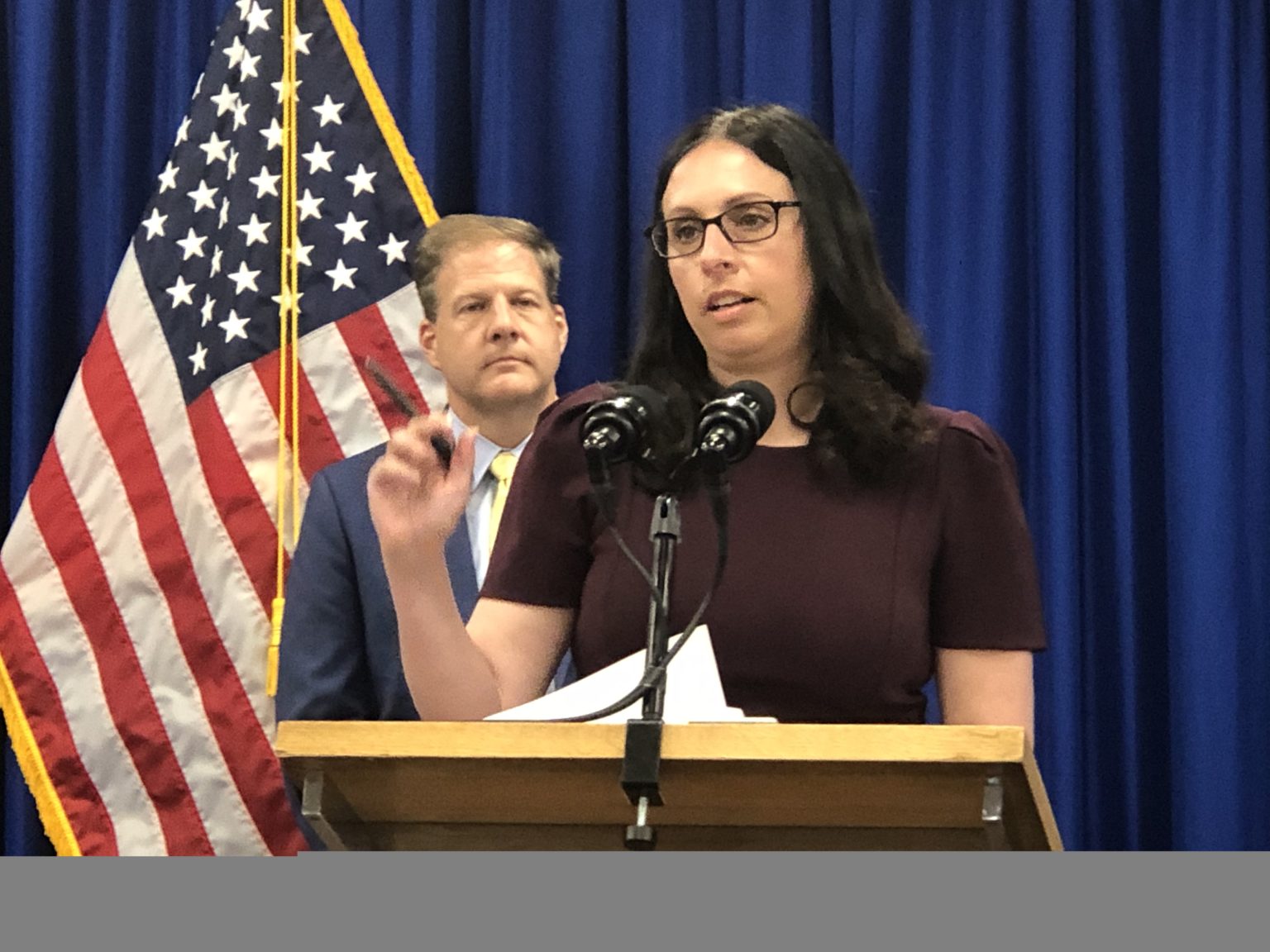
CONCORD, NH – Gov. Chris Sununu announced more than $16 million in federal CARES Act funding will go to install rural broadband at 5,574 homes and businesses by Dec. 31 at Thursday’s news conference.
The first batch of about $6.4 million will go to 2,385 locations in Bristol, Danbury, Deering, Errol, Hillsborough, Mason, Springfield Stoddard, and Washington.
“Rural broadband access will improve,” Sununu said. “This is about the last mile,” where there may be little or unreliable service necessary to allow for people to work and go to school in their homes.
He said grant agreements are also being worked out between towns and the vendors and there are pending contracts totaling $9.6 million for an additional 2,385 homes and businesses in other areas of the state.
“The state really doesn’t control the process,” Sununu said, but it does control these purse strings that are COVID-19 related and must be spent on construction to be completed before the end of this calendar year.
Sununu said he thinks New Hampshire is one of the only states using COVID-19 money to expand broadband through the CARES Act. He called the effort “phenomenal” and noted the average cost per hook-up is less than $3,000.
The deal really is between the municipalities and the broadband providers.
New Hampshire has about 10 broadband providers. Most are focused in the more populous southern and eastern portions of the state.
They include Comcast/Xfinity, Atlantic Broadband, FiberCast Cable, WirelessLINC, Spectrum, Granite State Internet, WI Valley, and NH Fastroads.
The benefits of broadband are many as they can improve educational opportunities, allow people to work from home, get telehealth for those who can’t travel or where the distance to a health care provider is a long way, energy efficiency, economic development, and property values, which Sununu said will go up in places that currently have no- or low-broadband access.
COVID-19 has only exacerbated the problems for those who have no broadband access or limited access.
Sununu said about 10 years ago, the state understood the disparity and developed a big broadband loop, but it didn’t go after “the last mile,” people whose homes or businesses were far away, had issues of topography, lack of density or other barriers to access.
He said by doing this, the infrastructure will improve and perhaps allow for many more to get access down that road. He said it is not necessarily a lack of broadband access but “is it fast enough, reliable, is it breaking all the time?”
Sununu said he thinks the state could have done a lot more with the CARES Act money “we just don’t have time,” noting it must be completed by Dec. 31 to get the money.
He said this is an example of federal coronavirus relief which “pays dividends down the road.”
The New Hampshire Broadband Map and Planning Program was set up through the University of New Hampshire to improve studying issues of broadband access across the state and has been working to help facilitate planning among the state’s nine regional planning groups.
Those groups have identified by region, towns, or areas that lack access to broadband.
The 2018 study is here which identifies areas of the state in need of improved broadband access.
New Testing Sites
As the state announced one new death and 25 new cases of COVID-19 on Thursday, it also announced more community-based testing sites that will be set up with hospital and health-care providers.
The locations are at 19 hospitals, urgent care facilities, and pharmacies across the state.
In the next weeks the fixed testing sites which have been staffed outdoors, often at National Guard Armories will be taken down, but only after the new sites are set up, said Health and Human Service Commissioner Lori Shibinette.
She said going forward the state will look to create more testing sites – likely drive-in type settings – to fill geographical gaps that might exist to ensure that people can get a test near home.
To get more information on the new sites visit nh.gov./covid19 and click the button “get tested.”
People can also call 2-1-1.
“Access to testing should not be an issue for anyone at all,” Shibinette said.
It is also not a matter of cost as it will be covered by Medicaid for those who do not have insurance.
“It is really important than no one needs to drive long distances,” Shibinette said.
Nonprofit Grants
Sununu announced that money from the $60 million nonprofit relief fund through the CARES Act, which is being administered by the Community Development Finance Authority and the New Hampshire Charitable Foundation will be award beginning on Monday with checks following immediately thereafter.
Sununu called nonprofits “crucial” to the state.
The deadline was extended for funding for the so-called GAP fund because this week’s tropical storm knocked out power and a few thousand residents are still left without power.
People have until Aug. 7 to apply.
Also on Monday, the veterans’ program application will close and all service organizations can apply. Both can be found at goferr.nh.gov. to apply.
Bike Week
Sununu said he has formed a team to formalize details on Bike Week, an annual event that has been rescheduled from the spring to begin on Aug. 22.
There won’t be vendors and large beer tents but many of the events will go forward in spite of the pandemic.
Sununu said the group was formed to ensure the right health and public safety measures are in place for large crowds and he said the state has been working with organizers and city officials in Laconia, the epicenter of all the various events are in an area of the city known as Weirs Beach.
“I feel confident it will go off successfully,” Sununu said. “we do have the guidelines in place.”







